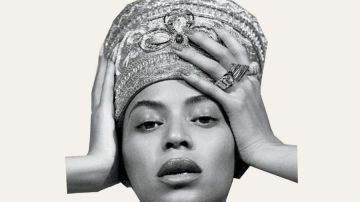Beyonce’s ‘Homecoming’ is a Celebration of Black Academic Excellence
Something Beyoncé is so good at doing is framing her art within the academic dialogue about Blackness in America

Photo: Instagram/Beyonce, Netflix
Something Beyoncé is so good at doing is framing her art within the academic dialogue about Blackness in America. Since Bey doesn’t like to give interviews so much of what she communicates about the intention of her work is either quoted verbatim or spoken directly by those who have said it best — Warsan Shire, Chimamanda Ngozi Adichie, Nina Simone. And now in her new Netflix documentary Homecoming, Maya Angelou, WEB Du Bois, Alice Walker, Toni Morrison, Audre Lorde, and finally Beyoncé herself speaks candidly about everything she gave to her now legendary 20118 Coachella performance.
Homecoming is a look behind the scenes complete with alternate clips, training camp, as well as what was going on in Bey’s life at the time. Beyoncé shares her difficulty recovering from a pregnancy that was potentially life-threatening.
“I had an extremely difficult pregnancy. I had high blood pressure, I developed toxemia, preeclampsia, and in the womb, one of my baby’s heartbeat paused a few times, so I had to get an emergency C-section” she says in voice-over.
It was surprisingly vulnerable considering how so much of The Carters’ image is kept secret, perfect, and polished. Aside from the elevator footage of Solange and Jay-Z, whatever hardships they’ve experienced in private have been expressed in such beautiful artistic finality that it makes us forget that the transformative process is ugly as hell.
In Homecoming we get to see Beyoncé’s struggle as a human as she trains to regain her movement; as an artist as she tries to fully convey her vision, as a mother as she deals with the separation from her twins, as a Black person within the dialogue about Black America and all the obstacles that comes with it, and as a Black woman as she prepares to be Coachella’s first Black female headliner.
“As a Black woman, I used to feel like the world wanted me to stay in my little box and Black women often feel underestimated. I wanted us to be proud of not only the show, but the process, proud of the struggle, thankful for the beauty that comes with a painful history and rejoice in the pain, rejoice in the imperfections and the wrongs that are so damn right. I wanted everyone to feel grateful for their curves, their sass, their honesty, thankful for their freedom. It was no rules and we were able to create a free, safe space where none of us were marginalized.”
Just as she does in her music, the experiences that led to her Homecoming are presented in relation to the dialogue of Black academics, which also proves to be an overarching representation for the layered struggle of the Black community that led to the creation of the HBCU tradition that birthed generations of writers, poets, philosophers and people who pushed the culture forward.
Since Beyoncé wasn’t able to go to an HBCU herself, her Homecoming is made even that much more significant. HBCU yearly Homecoming is a chance for alumni to reconnect with friends, see how things have changed, welcome in the next generation of students, but most of all it’s a celebration of Black academic excellence that continues to break barriers and overcome obstacles. It’s a return and a continuation of an ongoing process — in Homecoming we get to see the process, the joyful painful process of becoming.
In a country that disparages Black lives, at a festival whose performers are predominantly white and male, the first Black woman to headline Coachella did so on the shoulders of those who came before her — and it shows.

















